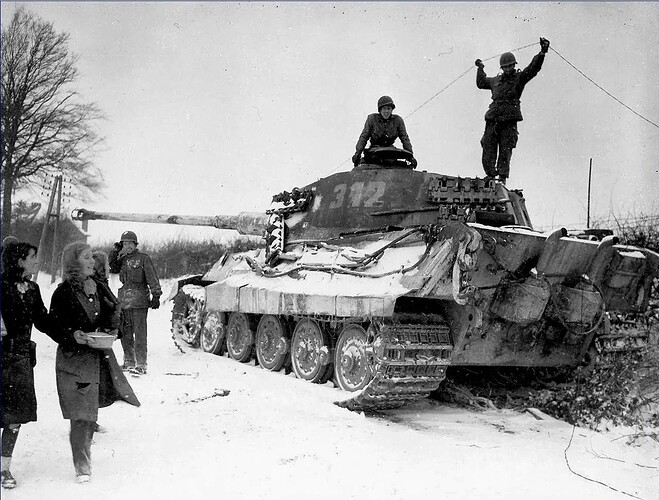Based on the responses in the following thread links, I went ahead and transcribed some paragraphs from Beevor’s latest work:
In his latest book on the Battle of the Bulge Ardennes 1944, Antony Beevor writes:
Tensions between the Waffen-SS and the German army were growing because of Hitler’s insistence on saving SS formations in a retreat while ordinary (Heer) divisions were left to fight on as a rearguard
…
“There were many comments”’ acknowledged General Warlimont, “to the effect that the SS no longer considered itself a member of the Wehrmacht but had its own organization.” Sepp Dietrich wanted his Sixth Panzer Army to be designated an SS panzer army, but this was denied because he had non-SS formations in his command. Dietrich even refused to have General der Artillerie Kruse as his chief artillery officer because he was not a member of the SS. Manteuffel, like many others, had little respect for Dietrich’s generalship. He thought that the Sixth Panzer Army “was not commanded as one formation, and that its component parts did not fight with the same sense of duty as the Army divisions”. Dietrich was regarded as a bad joke by senior army officers.Oberstleutnant von der Heyte was even more scathing, after meeting (Dietrich) to discuss his parachute drop in front of the Sixth Panzer Army. He said that Dietrich liked to pose as “a people’s general”, but he was “a conceited, reckless military leader with the knowledge and abilities of a good sergeant. He has not moral scruples.” Heyte, although a German nationalist, detested the Nazis. (pg. 88)

 I will post more, but Beevor goes on to paint the Waffen-SS with disgrace for not least of which their looting of their OWN people. Bad habits die hard, so the SS even looted and stole from Germans often before fleeing towards the end. I believe one instance took place in Strasbourg just prior to a U.S. Army push where the SS and Luftwaffe fled, but not before stealing wholesale from their already battered people. He also writes of an instance were some German civilians openly told the SS to leave or surrender to the advancing Allies since the war was lost and they were only perpetuating suffering and prolonging the inevitable. In that instance, the Germans (old women) were fortunate that the SS commander tacitly agreed that the war was lost and the Nazi authorities (referred to as “Golden Pheasants” mocking their eagle insignias IIRC) were cowards for fleeing. He didn’t report them…
I will post more, but Beevor goes on to paint the Waffen-SS with disgrace for not least of which their looting of their OWN people. Bad habits die hard, so the SS even looted and stole from Germans often before fleeing towards the end. I believe one instance took place in Strasbourg just prior to a U.S. Army push where the SS and Luftwaffe fled, but not before stealing wholesale from their already battered people. He also writes of an instance were some German civilians openly told the SS to leave or surrender to the advancing Allies since the war was lost and they were only perpetuating suffering and prolonging the inevitable. In that instance, the Germans (old women) were fortunate that the SS commander tacitly agreed that the war was lost and the Nazi authorities (referred to as “Golden Pheasants” mocking their eagle insignias IIRC) were cowards for fleeing. He didn’t report them…
